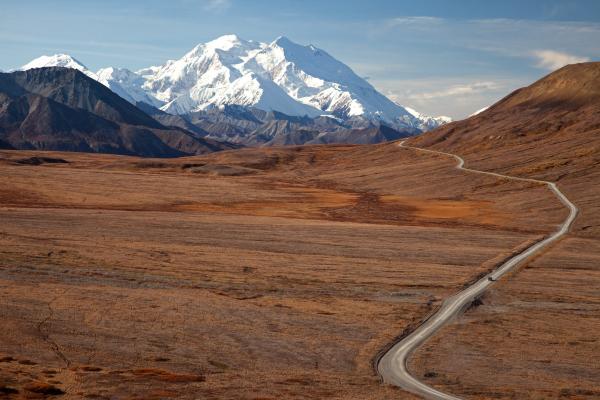DURING A TRIP to Alaska in September, President Obama announced that the name of Mount McKinley, the highest peak in North America, would be officially restored to Denali, the Koyukon Athabascan name that means “the tall one.” This is the name the Athabascan people have used for the mountain for centuries. “This designation recognizes the sacred status of Denali to generations of Alaska Natives,” announced the White House.
Apparently, William Dickey, a gold prospector in Alaska, coined the name Mount McKinley “after William McKinley of Ohio, who had been nominated for the presidency, and that fact was the first news we received on our way out of [that] wonderful wilderness,” Dickey wrote in 1896. McKinley was elected the 25th president, but he was assassinated in his second term, never having set foot in Alaska.
Restoring the mountain’s rightful name has been a passionate issue for Alaska Natives for more than 100 years.
A few years ago a Native elder was asked for his thoughts on the millions of European immigrants who had flooded Turtle Island, as North America is known to many Native people, to establish a new nation. “They’ll leave,” he said. “Eventually, after they have used up all the resources and the land is no longer profitable for them, they’ll leave. They’ll move on to someplace different. And then we, the Indigenous people, will nurse our land back to health.” That is an incredible perspective from a wise man who has seen the lands of his ancestors senselessly exploited by generations of foreigners.
From a Native American perspective, the U.S. is a country of more than 300 million undocumented immigrants. People from all over the world have left their lands, their homes, their families, and everything they knew and loved to come here. They flocked to this “new world” largely in pursuit of a dream of financial prosperity. But they never asked for permission to be here, nor has permission ever been given.
Read the Full Article

